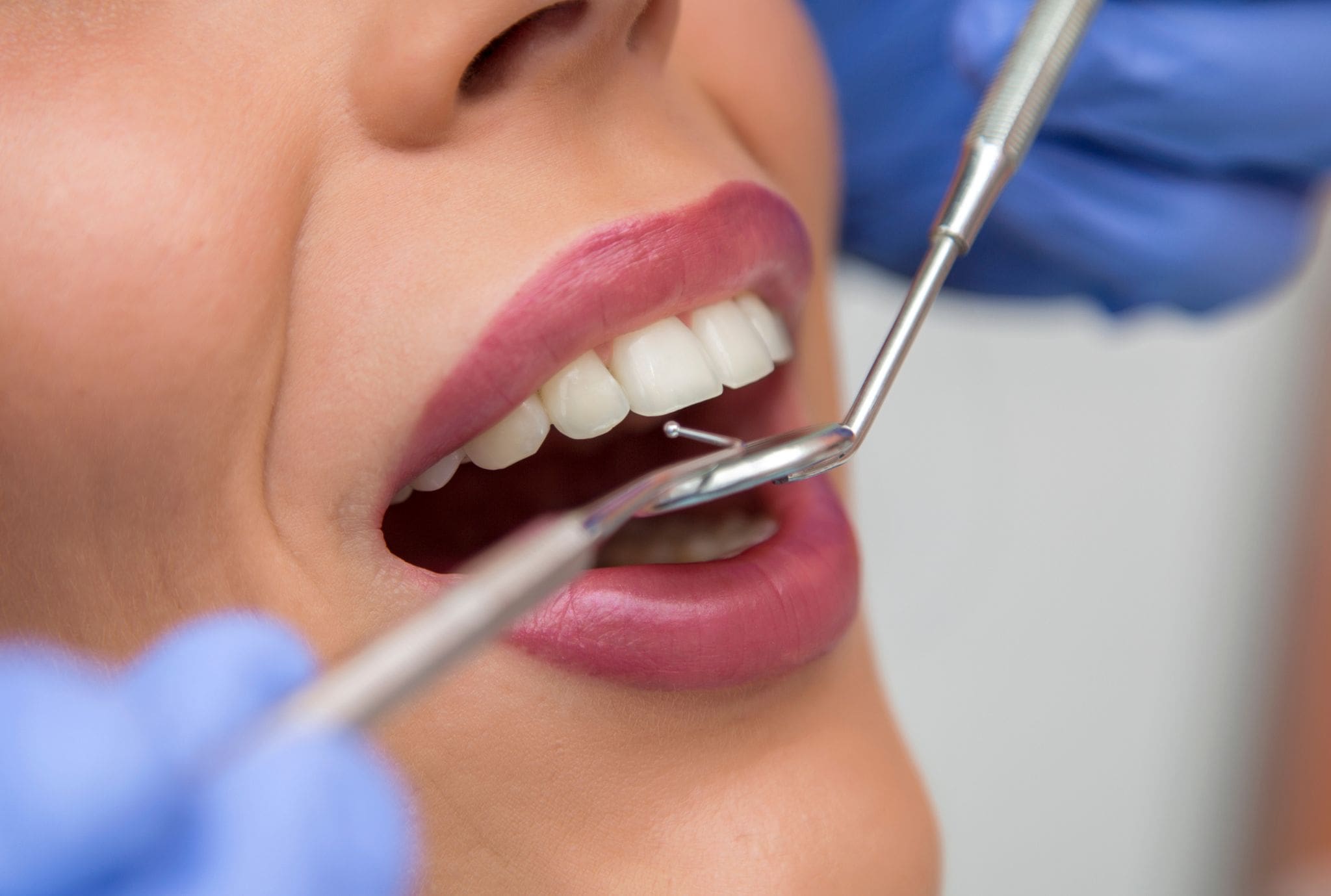Bruxism or Teeth Grinding is a condition in which an individual clenches, grinds or gnashes their teeth subconsciously during their sleep or sometimes even during wake hours. Most people are unaware that they grind their teeth in sleep, and it is often their partner, spouse, or another family member who lets them in on this fact.
There has been a rising trend of Bruxism in Dubai owing to lifestyle factors like stress, poor sleep and health conditions. It is important to address Bruxism, as ignoring it can result in serious dental issues like tooth wear, jaw pain and sleep disturbances.

Common causes of Teeth Grinding: From stress to sleep disorders
Bruxism is of two types– Primary & Secondary.
Primary Bruxism occurs by itself and does not result due to another condition. Common causes of primary Bruxism are:
- Misaligned bite
- Chronic stress
- Smoking
- Alcohol consumption
Secondary Bruxism occurs as a consequence of other health conditions, and common causes include:
- Mental health conditions like anxiety and depression
- Neurological conditions like Parkinson’s disease
- Sleep apnea (a condition that causes temporary stoppage of breathing during sleep)
- As a side effect of medications
Teeth Grinding at night: Why it happens and how to stop it?
If Two of the most common reasons for Teeth Grinding at night are stress and sleep apnea. Nighttime Teeth Grinding is also called sleep bruxism. While sleeping, the individual who shows Bruxism cannot perceive their bite strength, resulting in them clenching their teeth more tightly.
If you suffer from Teeth Grinding at night, visit Hortman Clinics, Dubai, for a consultation with our experts, including our sleep specialist, to determine the cause. Our experts will treat the root cause and help you reduce the habit.
How to identify the symptoms of Bruxism: Signs you’re grinding your teeth
While most people who show Bruxism do not know it themselves, here are a few symptoms that will help you identify the condition:
- Headaches and facial pain, particularly in the morning after waking up
- Earaches
- Sore jaw muscles
- Tinnitus (ringing in the ears)
- Pain on eating
- Difficulty in opening and closing the mouth
Long-term effects of Teeth Grinding: Why it’s important to seek treatment
Bruxism must be treated as neglecting it can result in long-term implications, such as:
- Wearing away of enamel that results in teeth sensitivity
- Gum inflammation and bleeding
- Weakening and loose teeth
- Damage to dental prostheses like fillings, crowns, and veneers
- Short or flattened teeth
- Tooth fractures
- TMJ (jaw joint) issues that can cause pain, chewing difficulties and tension
Effective treatment options for Teeth Grinding: From mouthguards to therapy
There are many effective treatment options for Teeth Grinding. During your consultation appointment with our dental expert at Hortman Clinics, they will assess your habit and determine the most likely cause of your condition.
Mild cases of Bruxism or Teeth Grinding usually do not require any treatment. Moderate to severe cases can be treated in one or more of the following ways:
This appliance is made of flexible rubber or plastic and is customised for an individual’s teeth. The dentist may recommend wearing a mouthguard or splint at night to protect teeth from further damage.
A mouthguard can help even out the pressure across the jaw by providing a barrier between teeth and reducing the noise caused by Teeth Grinding. While you may find mouthguards at pharmacies, these OTC products are not as comfortable as the ones tailored to your teeth by the dentist.
In some severe cases of Bruxism, Botox injections (containing botulinum toxin) may be given to paralyse the jaw muscles that cause sleep or night bruxism. However, Botox often requires repeat sessions to maintain its effects.
If your Teeth Grinding is due to poor tooth alignment, the dentist will recommend undergoing orthodontic treatment to realign your teeth with braces or other corrective dental procedures.
If the dentist diagnoses that your Teeth Grinding may be due to stress, they may recommend finding ways to reduce stress. Meditation, exercise, mindfulness, yoga, and cognitive behavioral therapy are some ways to reduce stress effectively.
Natural remedies to relieve Teeth Grinding and jaw pain
While most people require the assistance of a dentist, here are a few natural remedies and lifestyle changes that can help with Teeth Grinding and jaw pain:
- Cut back on foods or avoid those that contain excess caffeine. These include colas, chocolates and coffee.
- Avoid alcohol as Teeth Grinding often increases after alcohol consumption.
- Consciously make an effort not to grind your teeth. If you find yourself doing so, place the tip of your tongue between your teeth. This trains your jaw muscles to relax.
- Practice relaxing your jaw muscles at night by holding a warm washcloth against your cheek.
- Avoid chewing gum as it gets your jaw muscles more used to Teeth Grinding.
Teeth Grinding at night: Why it happens and how to stop it?
Two of the most common reasons for Teeth Grinding at night are stress and sleep apnea. Nighttime Teeth Grinding is also called sleep bruxism. While sleeping, the individual who shows Bruxism cannot perceive their bite strength, resulting in them clenching their teeth more tightly. If you suffer from Teeth Grinding at night, visit Hortman Clinics, Dubai, for a consultation with our experts, including our sleep specialist, to determine the cause. Our experts will treat the root cause and help you reduce the habit.
When to consult a dentist about Teeth Grinding
If left untreated, Teeth Grinding can lead to significant oral health problems. Consulting a dentist early on can help prevent long-term damage and alleviate symptoms like jaw pain or headaches.
If you're experiencing any of the following, it’s time to consult your dentist:
- Worn-down or flattened teeth
- Frequent headaches or jaw pain
- Tooth sensitivity or chipping
- Clicking or locking of the jaw
- Disrupted sleep patterns
At Hortman Clinics, our dental expert will assess the wear and condition of your teeth.
- If grinding is causing noticeable damage, they may recommend occlusal splints (night guards).
- The dentist will examine the long-term effects of teeth grinding on your teeth and jaw, checking for cracks, chips, or worn enamel that increase the risk of decay or damage, signs of TMJ disorders, and potential gum recession caused by excessive pressure on certain areas of the mouth.
When to consult a dentist about Teeth Grinding
- Our dental expert will assess the wear and condition of your teeth.
- If grinding is causing noticeable damage, they may recommend occlusal splints (night guards).
- The dentist will examine the long-term effects of teeth grinding on your teeth and jaw, checking for cracks, chips, or worn enamel that increase the risk of decay or damage, signs of TMJ disorders, and potential gum recession caused by excessive pressure on certain areas of the mouth.
FAQs
Frequently asked questions
The duration of treatment for bruxism depends on the severity of the condition. For example, mild cases may show improvement in just a few weeks after beginning treatment, whereas severe cases may take 1 to 5 months.
Yes, bruxism can affect facial bones, nerves and muscles, especially those in the teeth.
There is scientific evidence to suggest that bruxism can be hereditary, suggesting a genetic association in its development.
They sure can! Magnesium deficiency can increase stress, and people may experience muscle spasms. It also influences sleep. Since a lack of sleep can increase an individual’s risk of teeth grinding. Vitamin B5 is another nutrient whose deficiency can lead to teeth grinding.
Key Takeaway!
Teeth grinding is usually a subconscious habit triggered by stress, misaligned teeth, or sleep disorders. If untreated, it can lead to long-term damage, such as worn enamel, jaw pain, and even tooth fractures. Recognising the symptoms of Teeth Grinding is crucial for early intervention. Consulting a dentist early can prevent long-term complications and protect your oral health for the future. Do you grind your teeth at night, or have you been told you do? Get an evaluation from our board-certified dental experts at Hortman Clinics, the best aesthetic clinics in Dubai. Book a consultation now!




